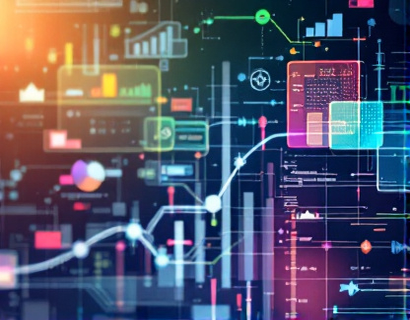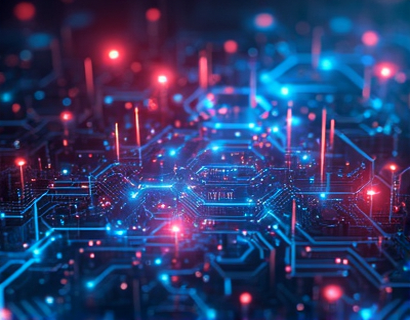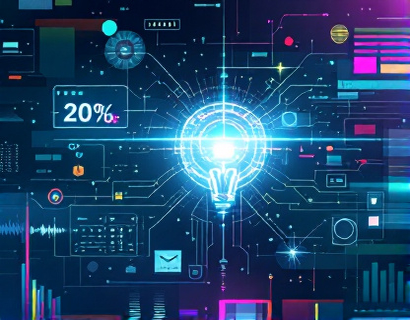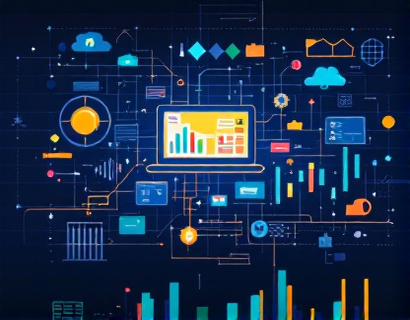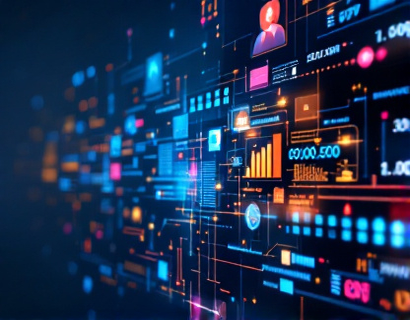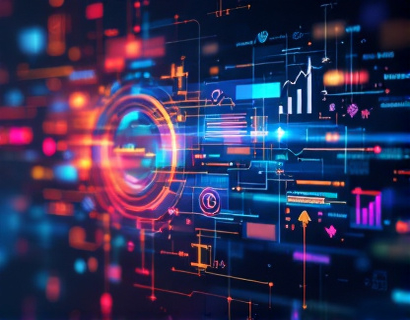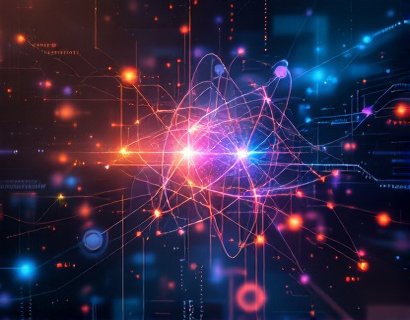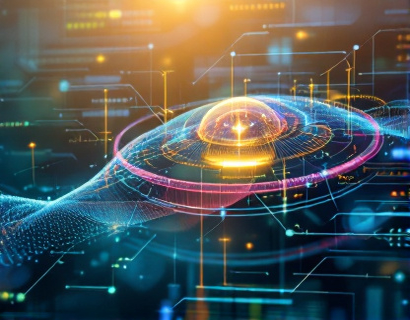Unlocking Next-Gen Productivity with AI and Crypto: A Synergistic Approach
The integration of Artificial Intelligence (AI) and cryptocurrency is paving the way for a new era of productivity enhancement. This synergy is not just about combining two cutting-edge technologies but about creating a seamless ecosystem where workflow and task management are revolutionized. For tech-savvy professionals and early adopters, this convergence offers advanced digital solutions that promise to transform the way we work, making processes smarter, more efficient, and highly personalized.
Understanding the Synergy
The fusion of AI and cryptocurrency leverages the strengths of both domains. AI brings intelligent automation, predictive analytics, and enhanced decision-making capabilities. Cryptocurrency, on the other hand, provides a decentralized, secure, and transparent medium for transactions and data exchange. When combined, these technologies can create decentralized applications (dApps) that are not only secure but also highly efficient in managing complex workflows.
One of the key benefits of this synergy is the elimination of intermediaries. Traditional workflows often involve multiple layers of approval and verification, which can slow down processes and increase costs. With AI and cryptocurrency, these intermediaries can be bypassed, leading to faster and more cost-effective operations. Smart contracts, a cornerstone of blockchain technology, automate and enforce contractual obligations without the need for third-party intervention, ensuring trust and reliability in transactions.
Enhanced Task Management
Task management is a critical aspect of productivity, and the integration of AI and cryptocurrency can significantly improve this area. AI-driven task management tools can analyze user behavior, predict workloads, and optimize task assignments in real-time. For instance, an AI system can monitor the performance of team members, identify bottlenecks, and automatically redistribute tasks to ensure optimal resource utilization.
Cryptocurrency adds another layer of efficiency by enabling seamless and secure micropayments for task completion. This means that workers can be incentivized with cryptocurrency tokens for completing specific tasks, and these tokens can be easily transferred and verified on the blockchain. This not only streamlines the payment process but also reduces the administrative overhead associated with traditional payment methods.
Smart Workflows and Automation
Smart workflows powered by AI and cryptocurrency can automate repetitive and time-consuming tasks, allowing professionals to focus on higher-value activities. For example, AI can be used to automate data entry, report generation, and even complex analytical tasks. These tasks can be executed with high accuracy and speed, reducing the risk of human error and freeing up time for more strategic work.
Blockchain technology ensures that all steps in the workflow are transparent and immutable. Each action is recorded on the blockchain, providing a tamper-proof audit trail. This transparency is particularly valuable in industries where compliance and accountability are paramount. Additionally, the use of smart contracts can automate the execution of workflow steps based on predefined conditions, further enhancing efficiency.
Personalized Productivity Tools
AI-driven personalized productivity tools are another exciting development in this space. These tools use machine learning algorithms to understand individual work patterns and preferences, tailoring recommendations and automations to each user. For instance, an AI-powered assistant can learn an individual's scheduling habits and suggest optimal times for meetings or breaks, thereby improving overall productivity.
Cryptocurrency can enhance these tools by providing a secure and decentralized way to manage user data and preferences. Users can have full control over their data, choosing what information to share and with whom. This not only enhances privacy but also builds trust in the system, encouraging more widespread adoption.
Decentralized Collaboration Platforms
Collaboration is a crucial component of modern workflows, and the combination of AI and cryptocurrency can revolutionize how teams collaborate. Decentralized collaboration platforms can leverage blockchain to create secure and transparent workspaces where team members can share files, communicate, and track progress in real-time.
AI can further enhance these platforms by providing intelligent suggestions and insights based on collaborative data. For example, an AI system can analyze communication patterns to identify potential conflicts or areas where additional input is needed. Smart contracts can automate the distribution of credits or rewards based on contributions, ensuring fair and transparent recognition of team efforts.
Security and Trust
Security is a top priority in any digital solution, and the integration of AI and cryptocurrency addresses this concern effectively. Blockchain's inherent security features, such as cryptographic hashing and decentralized consensus mechanisms, ensure that data is protected from tampering and unauthorized access. AI can complement this by detecting and mitigating potential security threats in real-time, using advanced anomaly detection and predictive analytics.
Trust is another critical factor, and the transparency provided by blockchain builds confidence among users. Every transaction and action is recorded and verifiable, reducing the risk of fraud and errors. AI can enhance this by providing auditable logs and insights into system operations, further reinforcing trust in the platform.
Future Prospects and Challenges
The future of AI and cryptocurrency in productivity enhancement is promising, with numerous potential applications across various industries. However, there are also challenges that need to be addressed. One of the main hurdles is the scalability of blockchain networks, which can currently handle a limited number of transactions per second. Advances in blockchain technology, such as layer 2 solutions and sharding, are addressing this issue but require continued innovation and adoption.
Another challenge is the user adoption curve. While tech-savvy professionals and early adopters are likely to embrace these technologies, broader acceptance will require user-friendly interfaces and educational initiatives. Simplifying the onboarding process and providing intuitive tools will be crucial in driving widespread adoption.
Regulatory frameworks also play a significant role in the adoption of AI and cryptocurrency solutions. Clear and supportive regulations can foster innovation and trust, while overly restrictive policies can stifle growth. Collaboration between technologists, policymakers, and industry stakeholders will be essential in creating an environment that encourages responsible and beneficial use of these technologies.
Conclusion
The convergence of AI and cryptocurrency is unlocking new possibilities for productivity enhancement, offering advanced digital solutions that are smarter, more efficient, and highly personalized. For tech-savvy professionals and early adopters, embracing this synergy can lead to significant improvements in workflow management and task optimization. As the technology continues to evolve, the potential for innovation and transformation in various industries is immense, paving the way for a more productive and secure digital future.



